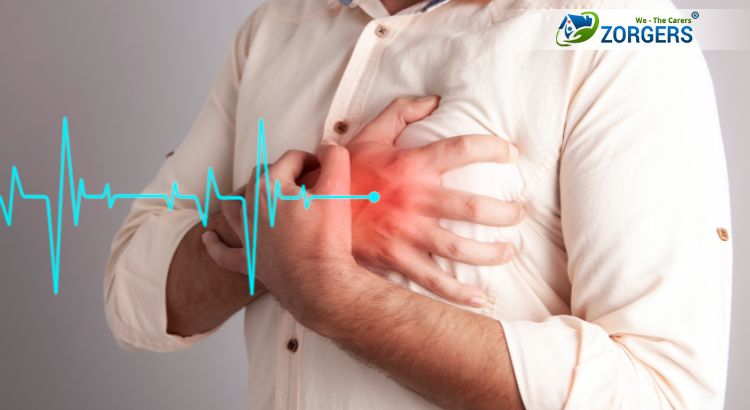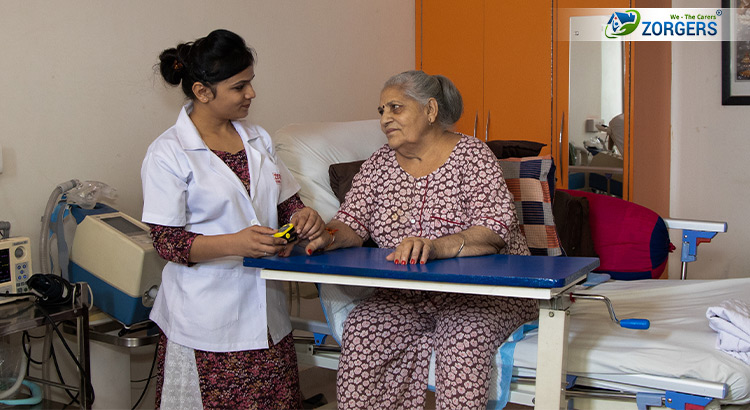What is a cardiac arrest/heart attack?
The condition when the heart abruptly stops beating is cardiac arrest. The lack of blood flow to the brain or other organs may cause a person to lose consciousness, become disabled, or pass away, if not treated right away. The symptoms of cardiac arrest or heart attack symptoms differ from person to person and may include, fatigue, dizziness, shortness of breath, chest pain, increased heartbeats, loss of consciousness, etc.
Covid-19 times
Covid/COVID-19/Coronavirus took the world by storm. The outbreak in Wuhan, China impacted almost the entire world. Coronavirus affected millions and claimed many lives. The onset of the virus was 2-14 days after one was exposed.
COVID-19 was packed with surprises, causing minor issues for some and severe complications for others. The new normal was indeed a nightmare. Social distancing, masks, and regular washing of hands were observed.
Covid was a tough time for each and every one of us. The pandemic altered our lives to a great extent. The announcement of the nationwide lockdown shook us to the core.
What does the research say?
The risk of cardiac arrests/ heart attacks after covid is a serious concern for patients, their families, and their caregivers. The rise in sudden cardiac arrest (SCA) cases among Covid-recovered patients, shocked people. No matter how healthy a person was, there was still a risk.
• Research shows that people who were diagnosed with covid have a long-term, substantially higher risk of cardiovascular disease, which includes heart attacks and stroke.
• A new study revealed that even a mild case of COVID-19 can raise a person's risk of cardiovascular issues for up to a year after diagnosis.
• Hospitalization increased the chances of cardiovascular complications, however, even those who were at a higher risk for a variety of conditions avoided hospitalization.
• It has been proven beyond a doubt that a Covid infection has serious and far-reaching effects on one's body over the course of the pandemic's two-year duration.
Findings and Statistics
• According to Prof. (Dr.) Ashok Seth, Chairman of the Fortis Escorts Heart Institute and the Chairman of the Fortis Healthcare Medical Council – No matter how severe the infection is, COVID does cause heart problems.
• Worry and stress caused by the coronavirus have had a critical impact on the mental health of 45% of adults.
• As per the study published by The BMJ, critically ill covid-19 patients frequently experienced cardiac arrest, which is linked to poor survival, especially in patients who are 80 years or older.
• The likelihood that COVID-19 survivors would survive all cardiovascular outcomes significantly decreased.
• Researchers discovered that the risk of 20 different heart and vessel diseases was significantly higher in veterans who had COVID-19 1 year earlier compared to those who did not. This was concluded after analyzing more than 11 million U.S. veterans' health records.
• After 12 months, those who had COVID-19 had a 72% higher risk of heart failure than those who did not test positive.
• According to the initial study on SCD in India conducted by Rao et al in 2012, the overall mortality rate from SCD in India was 10.3% (roughly estimated at 7 lakh cases per year), with 21% of the deaths occurring in people under the age of 50.
Risks
A sudden blockage of the arteries is caused by inflammation due to Coronavirus. Even an increase in blood clotting is the cause of blockage and heart attack. This inflammation and infection compromise the heart’s ability to pump blood, resulting in heart failure.
“Even a person having 20-30% block in the heart can have clots. Youngsters developing any discomfort after recovering from Covid should not wait till later; they should seek medical help. There is no proof that due to exercise, one person may develop a heart attack even after Covid,” said a cardiologist at Kottayam Medical College Hospital.
Even those individuals were prone to risk who were below 65 years of age and had no risk factors like diabetes or obesity.
Precautions
Prevention is the key to managing COVID-19. All COVID-19 hospitalized patients should have a baseline ECG to look for additional risk factors. Any high-risk factors must involve more frequent ECG monitoring throughout the hospital stay.
Combination therapies shall be suggested based on the patient's health and symptoms.
At a personal level, being proactive is the best solution. Check out the below-mentioned list of precautions:
• Look after yourself – Taking care of yourself is of utmost importance. Stay away from anxiety, stress, and rumors. Take out some time to exercise and get your vitamin Sun. be cautious about making sure that cardiovascular risk factors are in control. In case you experience palpitations, chest pain, or any other red sign, consult your doctor immediately.
• Visit your doctor – A complete recovery from the infection can take anything from two to six weeks. Anything beyond persistent should be checked with your doctor.
• Get sufficient sleep – Following COVID-19, sleep disorders, that are connected to heart issues, may appear. It is important to have good quality sleep.
• Stay informed – It is always advised to keep yourself updated with trustworthy information. Believe only reliable sources. Not every piece of information is correct, hence limit your media usage.
• Vaccination is a must – By now, each of us is double vaccinated and owns the vaccination certificate. The vaccines reduce the likelihood of infection and serious illness.
Conclusion
The increased risk of developing heart disease in India is largely attributable to poor lifestyle choices, such as a preference for junk food, inactivity, smoking, and mental stress, as well as some genetic factors.
Modification in food habits and some lifestyle changes is the key. It is recommended to increase your greens and reduce your fries and junk. Indulge yourself in regular exercises and stress management. Prioritize yourself.
Your body is the only place where you live. Make it worthwhile and take care of it.
Tough people last, tough times don’t!
References
https://www.newindianexpress.com/states/kerala/2022/mar/06/increase-in-post-covid-cardiac-arrest-cases-remains-a-puzzle-2426883.html
https://www.nature.com/articles/d41586-022-00403-0#ref-CR1
https://www.ncbi.nlm.nih.gov/pmc/articles/PMC7568175/
https://www.heart.org/en/news/2022/03/31/after-covid-19-experts-say-watch-for-these-potential-heart-
and-brain-problems
https://www.thehindu.com/news/national/post-covid-carelessness-can-harm-the-heart-cardiologists/article37481968.ece
https://www.science.org/content/article/covid-19-takes-serious-toll-heart-health-full-year-after-recovery
https://www.thelancet.com/journals/eclinm/article/PIIS2589-5370(22)00349-2/fulltext
https://www.thehindu.com/news/national/kerala/sudden-cardiac-deaths-due-to-undetected-coronary-artery-disease-raise-anxiety/article65243036.ece







